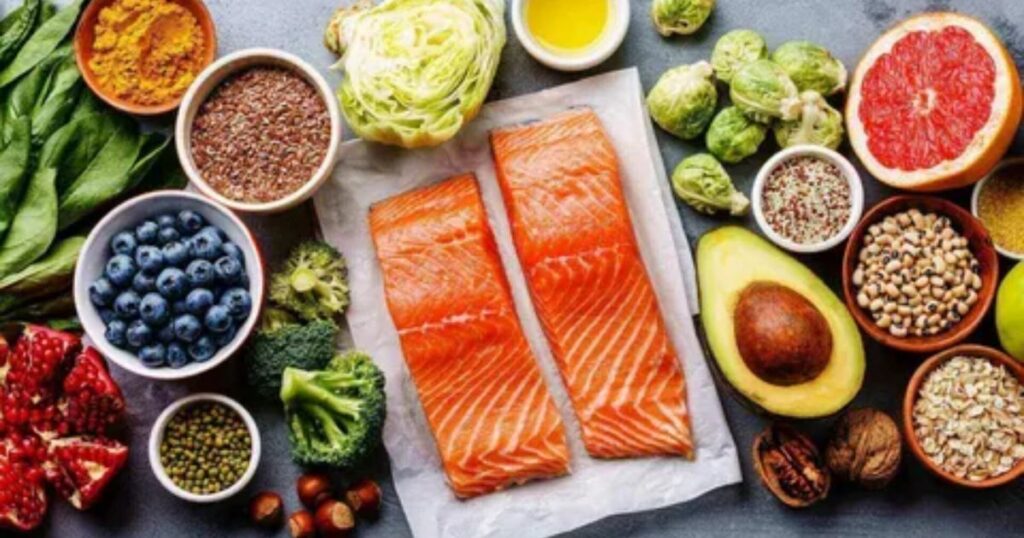A bass fish, often referred to as bass, is a freshwater or saltwater species of fish known for its distinctive elongated body and prominent mouth. These popular game fish come in various species, such as largemouth, smallmouth, and striped bass. They are prized for both recreational fishing and culinary purposes due to their mild-flavored, flaky flesh and are commonly found in North American waters.
Are you curious about the perfect catch for your next delicious meal? Dive into our comprehensive guide and discover the incredible world of bass as a delectable and nutritious choice. Uncover the secrets behind Is bass a good fish to eat? and make an informed decision that tantalizes your taste buds while nourishing your body.
Bass, a favorite among anglers, presents a delicious and nutritious option for seafood lovers. This article will delve deep into the world of bass, uncovering its impressive nutritional profile and health benefits. We’ll also address any potential concerns, such as mercury levels and sustainability issues, ensuring you make informed choices.
Bass, a term that encompasses several species, including largemouth, smallmouth, and striped bass, is renowned for its mild, flaky flesh and versatility in cooking. Before you decide to make bass a regular part of your diet, it’s crucial to understand its nutritional profile, health benefits, and any potential concerns.
The Nutritional Benefits of Bass
The nutritional benefits of bass make it a standout choice in the world of seafood. Rich in high-quality protein, a 3.5-ounce serving offers a generous 20.6 grams, promoting muscle health and overall vitality.

Table 1: Nutritional Content of Bass (Per 3.5 oz serving)
| Nutrient | Amount |
| Calories | 97 kcal |
| Protein | 20.6 g |
| Total Fat | 1.4 g |
| Saturated Fat | 0.4 g |
| Omega-3 Fatty Acids | 0.6 g |
| Vitamin D | 360 IU (15% DV) |
| Vitamin B12 | 3.4 mcg (142% DV) |
| Selenium | 29.2 mcg (53% DV) |
| Potassium | 351 mg (7% DV) |
| Phosphorus | 200 mg (29% DV) |
Protein Content
Bass is a significant source of high-quality protein. A 3.5-ounce serving provides around 20.6 grams of protein. Protein is crucial for various bodily functions, including muscle repair, immune system support, and maintaining healthy skin and hair.
Low in Calories
For those watching their calorie intake, bass is an excellent choice. With just 97 calories per serving, it is a low-calorie option that can help with weight management and overall health.
Healthy Fats
While bass contains some fat, it’s relatively low in total fat content, with 1.4 grams per serving. More importantly, the fat in bass includes omega-3 fatty acids, which are known for their heart-protective benefits. Omega-3s can reduce the risk of heart disease, lower blood pressure, and support brain health.
Rich in Essential Nutrients
Bass is a good source of various essential nutrients, including Vitamin D, Vitamin B12, selenium, potassium, and phosphorus. Vitamin D is crucial for bone health, while Vitamin B12 is essential for red blood cell production and neurological function. Selenium is an antioxidant that helps protect the body from oxidative stress, and potassium and phosphorus are essential for muscle and nerve function.
Potential Concerns
While bass is a nutritional powerhouse, there are potential concerns to consider. High in the food chain, bass may contain elevated levels of mercury, posing a risk for excessive consumption. Environmental impacts, including overfishing and habitat disruption, can affect bass populations. Careful preparation and sustainable choices can mitigate these issues.
Despite its nutritional benefits, there are some potential concerns associated with consuming bass, which you should be aware of.
Mercury Content
One of the primary concerns when eating bass is its potential mercury content. Mercury is a toxic metal that can accumulate in fish, especially larger species. Bass, being a predator fish, may contain higher levels of mercury. It’s important to pay attention to local advisories and recommendations regarding fish consumption, as well as the size and species of bass, to minimize your exposure to mercury.
Environmental Impact
Bass fishing is a popular sport and recreational activity, but it can have an environmental impact. Overfishing and habitat destruction can threaten bass populations. To minimize the environmental impact, it’s essential to support sustainable fishing practices and adhere to local regulations regarding catch limits and size restrictions.
Preparation Matters
The way you prepare bass can also impact its health benefits. Frying bass in unhealthy oils or serving it with high-calorie, high-fat sauces can negate some of its nutritional advantages. To enjoy the full benefits of bass, consider grilling, baking, or steaming it, and pair it with a variety of fresh vegetables and whole grains for a well-rounded meal.
Table 2: Potential Concerns When Consuming Bass
| Concern | Explanation |
| Mercury Content | Potential for mercury contamination, especially in larger bass species. |
| Environmental Impact | Overfishing and habitat destruction can harm bass populations. |
| Preparation Matters | Unhealthy cooking methods and accompaniments can reduce health benefits. |
Sustainability of Bass Consumption
Sustainability is a significant concern when it comes to seafood consumption. Overfishing and poor fishing practices can deplete fish populations and harm marine ecosystems. When it comes to bass, sustainability depends on several factors:
Regulations
Check local fishing regulations and guidelines regarding bass catch limits, size restrictions, and closed seasons. Adhering to these rules is essential for the conservation of bass populations.
Fishing Methods
Support sustainable fishing methods, such as catch-and-release practices, to reduce the impact on bass populations. Selective harvest, where only specific-sized bass are kept for consumption, can also help protect younger fish and maintain a healthy breeding population.
Alternative Species
Consider exploring alternative fish species that are more sustainable and have lower environmental impacts, such as tilapia, catfish, or farmed fish like trout.
Certifications
Look for seafood certifications, like the Marine Stewardship Council (MSC) label, when purchasing bass. These certifications indicate that the fish was sourced from fisheries that adhere to sustainable practices.
Protein Content
Bass is a significant source of high-quality protein. A 3.5-ounce serving provides around 20.6 grams of protein. Protein is crucial for various bodily functions, including muscle repair, immune system support, and maintaining healthy skin and hair.
Low in Calories
For those watching their calorie intake, bass is an excellent choice. With just 97 calories per serving, it is a low-calorie option that can help with weight management and overall health.
Healthy Fats
While bass contains some fat, it’s relatively low in total fat content, with 1.4 grams per serving. More importantly, the fat in bass includes omega-3 fatty acids, which are known for their heart-protective benefits. Omega-3s can reduce the risk of heart disease, lower blood pressure, and support brain health.
Rich in Essential Nutrients
Bass is a good source of various essential nutrients, including Vitamin D, Vitamin B12, selenium, potassium, and phosphorus. Vitamin D is crucial for bone health, while Vitamin B12 is essential for red blood cell production and neurological function. Selenium is an antioxidant that helps protect the body from oxidative stress, and potassium and phosphorus are essential for muscle and nerve function.
FAQs
Is bass a healthy fish to eat?
Yes, bass is a healthy fish to eat. It is rich in protein, low in calories, and contains omega-3 fatty acids that offer numerous health benefits.
What are the potential concerns when consuming bass?
The primary concerns when eating bass include its potential mercury content, environmental impact due to overfishing, and the way it is prepared. It’s important to be aware of these factors and make informed choices.
How can I make sure I’m consuming sustainable bass?
To ensure you are consuming sustainable bass, check local fishing regulations, support sustainable fishing methods, consider alternative species, and look for seafood certifications, like the Marine Stewardship Council (MSC) label, when purchasing bass.
Are there specific health benefits associated with eating bass?
Yes, bass offers several health benefits, including support for heart and brain health due to its omega-3 fatty acids.
Conclusion
Is bass a good fish to eat? The answer is a resounding yes when considering its nutritional benefits. Bass is an excellent source of protein, low in calories, and rich in essential nutrients. Its omega-3 fatty acids provide numerous health advantages, especially for heart and brain health.
It’s crucial to be aware of potential concerns, particularly the mercury content in bass and its environmental impact. By following local regulations, practicing sustainable fishing methods, and making wise choices in preparing and consuming bass, you can enjoy its nutritional benefits without compromising your health or the environment.
Bass is a good fish to eat depending on your awareness of these factors and your commitment to making informed, sustainable choices. With the right knowledge and practice, bass can be a delicious and nutritious addition to your diet.

